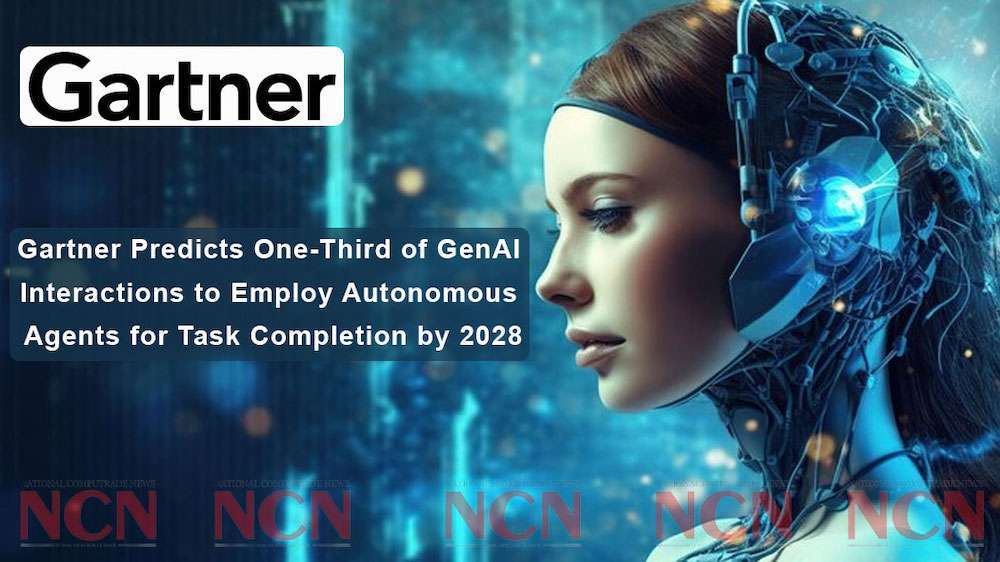By 2028, Gartner, Inc. predicts that one-third of engagements with generative AI (GenAI) services will involve the use of action models and self-operating agents for the completion of tasks. Self-operating agents are integrated systems that can achieve specific objectives without the need for constant human guidance, utilising a range of AI methods to make choices and produce results.
They possess the capability to adapt and enhance their performance, allowing them to tackle intricate assignments. “Looking ahead, the way people will interact with GenAI is likely to change. It could shift from individuals asking large language models (LLMs) to ask questions, to direct interactions with self-driven intent-based agents. This could lead to a greater level of independence and a stronger alignment with human objectives,” noted Arun Chandrasekaran, a Distinguished VP Analyst at Gartner.
Autonomous Agents Will Impact Several Business Sectors
Self-operating entities are capable of executing a range of functions, including linking various kinds of models, checking the results of a model before it’s used in another, and continuously processing incoming data streams.
These abilities can lead to features like internet access and application usage, managing the results of models, and automating intricate business operations based on human desires. “Autonomous entities can lessen the requirement for human involvement when dealing with LLMs and lessen the workload for business users in various industries, as they can devote less time to complex prompt engineering,” stated Chandrasekaran.
Autonomous agents will have an impact across several sectors:
- Healthcare: Autonomous agents can help medical professionals in areas such as disease diagnostics, treatment planning and patient care.
Education: Autonomous agents can offer personalised learning experiences and adapt teaching methods to the needs of individual students - Gaming: Autonomous agents can observe and interact with human players and provide more immersive and realistic experiences.
- Insurance: Autonomous customer service apps can handle most policyholder interactions through voice and text, and can assist with claims, fraud, medical service, policy and repair systems. They can have a dramatic impact on resolution, with responses and actions taking minutes rather than days or weeks.
- Ecommerce Marketing: Autonomy is verging on achieving this already for those disposed to early adoption of hyper-personalisation software. AI is developing exponentially in this area with send time optimisation currently at the pivotel edge of a whole host of technological developments such as AutoML.
To achieve this, Gartner suggests that organisations:
- Identify use cases in which action models and autonomous agents can add value by reducing the amount of human effort and skill needed.
- Build an architecture to enable autonomous agents to thrive. Do so by providing tool integration and access to knowledge repositories and long-term memory, enabling agents to demonstrate expanded reasoning and expertise.
- Acknowledge that action models and autonomous agents aren’t a substitute for prompt engineering — their ultimate potential remains tied to the quality of the prompts they receive.
- The balance between autonomy and control through extended pilots and rigorous agent monitoring.





